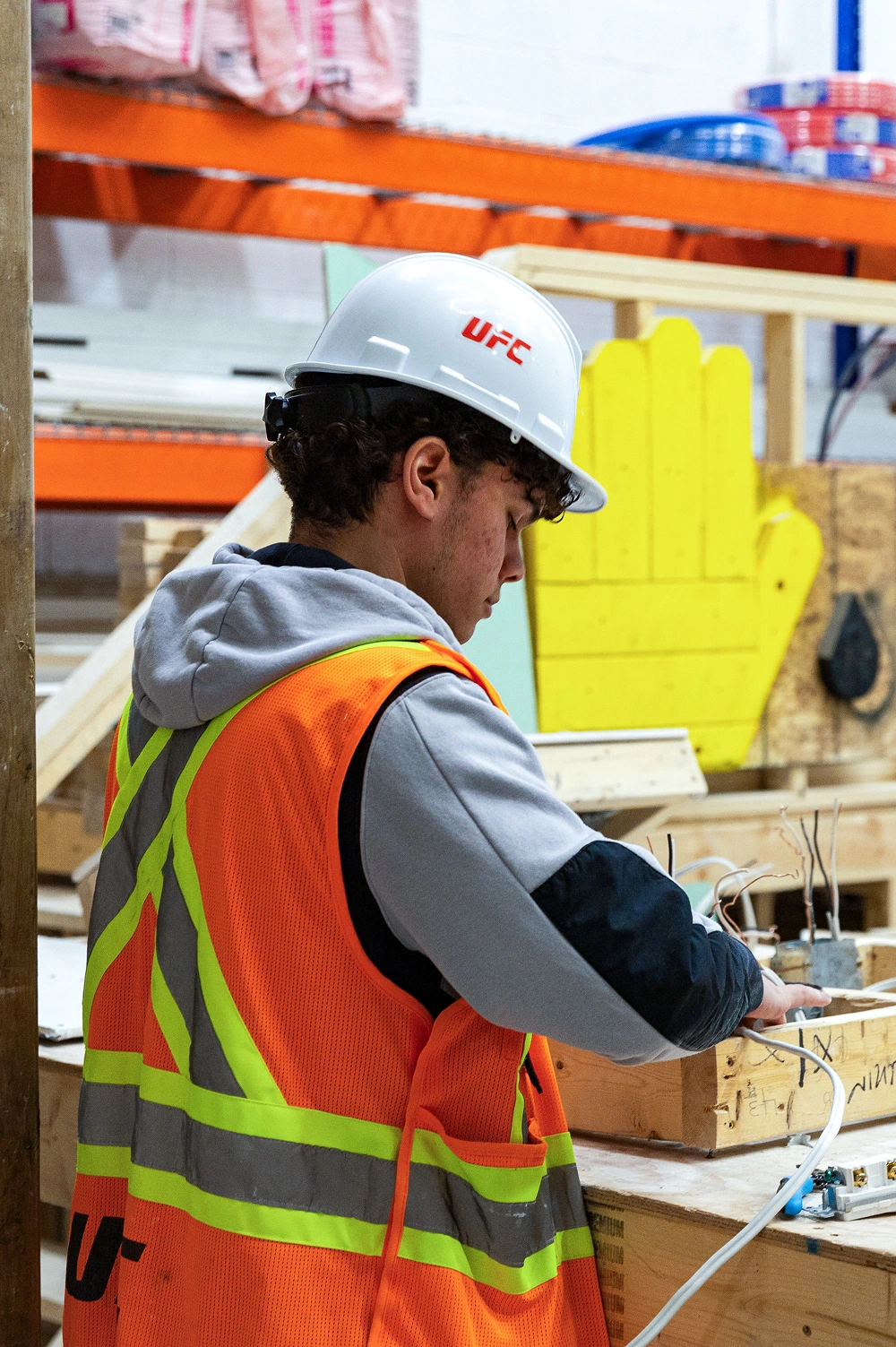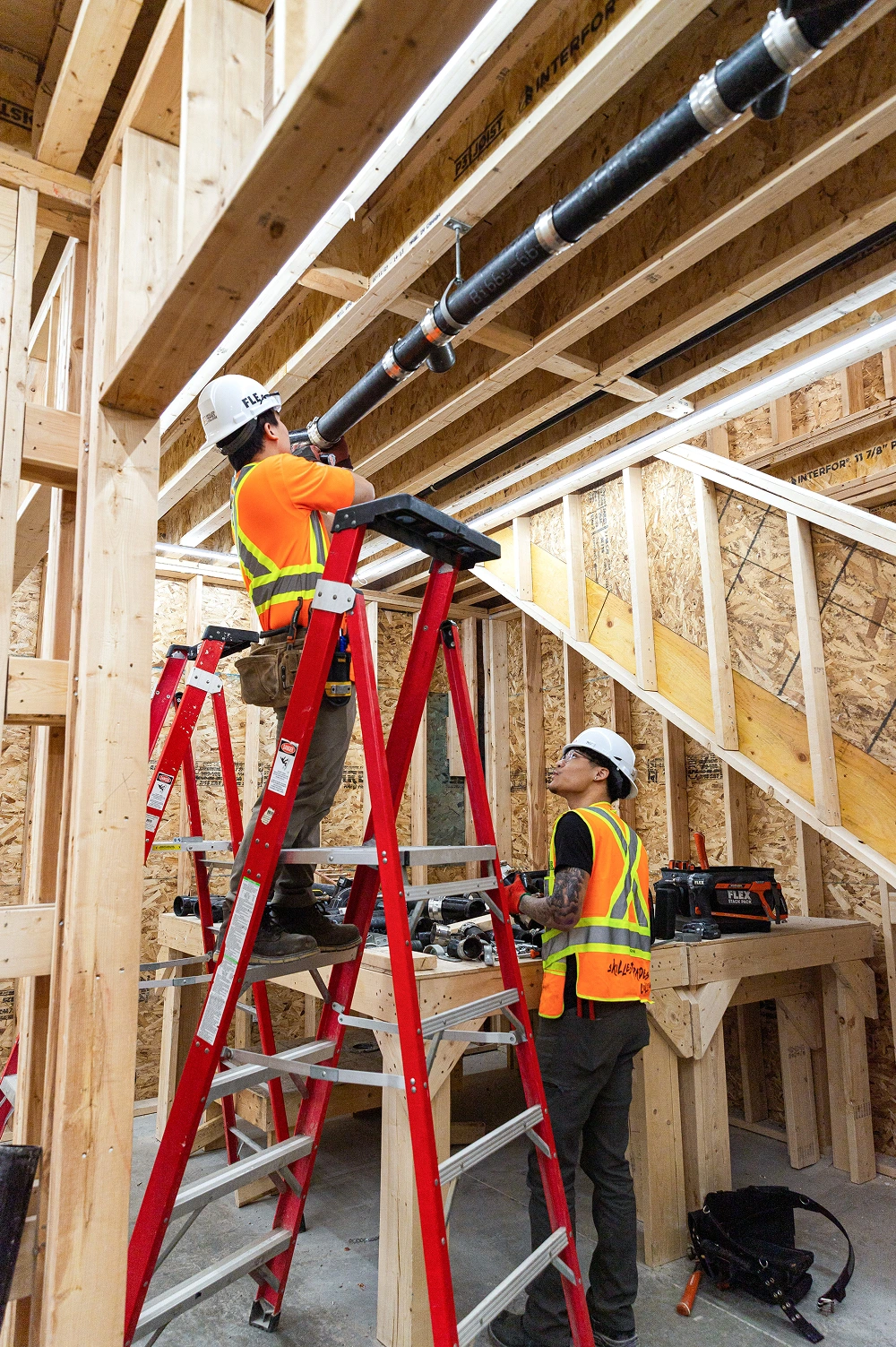The Importance of Construction Site Safety

Published On
2022-09-08

Aside from a good employment outlook and steady growth, a career in plumbing also offers variety, independence, and advancement opportunities. So, what are the requirements to be a plumber in Canada?
The requirements to be a plumber vary from one province to another. But there are a few basic qualifications and skills that are commonly asked for by employers from candidates in most Canadian provinces or territories. Here are some of them:
Red Seal endorsement—a certification that allows plumbers to earn more per hour—is available to qualified plumbers once they have completed the interprovincial Red Seal examination.
If you’re already a certified plumber in your province, it would be easier to have your certification recognized in another province without undergoing significant additional training, assessment, or examinations through the Canadian Free Trade Agreement.

The requirements for plumbing pre-apprenticeship programs in Canada vary. But in most provinces and territories, you must:
If you have not completed high school, you may be required to complete an entrance exam.
While completing a pre-apprenticeship program is not mandatory, employers are more likely to hire apprentices who have the knowledge, skills, and safety training because they’re usually fast learners—which saves their company time and money.
A pre-apprenticeship program will equip you with the right mix of plumbing theory and hands-on experience to increase your chances of getting hired as an apprentice. It will give you a solid foundation in safety training, plumbing codes, and practical techniques among other skills you need to succeed.
So while completing a pre-apprenticeship program isn’t required, it could spell the difference between finding employment or not.
After meeting the educational requirements to be a plumber, the next step is to find an employer who will take you in as an apprentice. You can apply directly at local companies or go through a union.
But whether you get the apprenticeship through a union or not, apprenticeship training usually lasts four to five years. It involves 144 hours per year (9,000 hours total) of organized, classroom-based instruction that will teach you the following:
But classroom education is just about 20% of your apprenticeship program. You’ll spend 80% of your time doing on-the-job training, getting paid while doing it, and being mentored by a pro (a journeyperson) who will show you the ropes of the trade.
You’ll need to complete at least 6,000 hours of on-the-job training and four eight-week blocks of technical training. You must also pass a final certification exam to complete your apprenticeship.
The final exam—which is given by the Canadian Council of Directors of Apprenticeship (CCDA)—is designed to assess your knowledge of running different plumbing systems. In order to pass the certification of qualification exam, your score should be at least 70%.
As mentioned earlier, this trade certification is required in some provinces and territories but considered voluntary in others. Although it is voluntary, some employers may ask you to complete it before giving you a job offer.

That wraps up our detailed guide on “What are the requirements to be a plumber?”
If you have military plumbing training, related work experience, or completed a plumber program at a college or technical institute, then these could be credited and reduce the time required to complete your apprenticeship.
Skilled Trades College offers pre-apprenticeship training and mentorship for plumbing and other types of skilled trades. While most colleges offer similar courses, they typically span 1.5 years to finish—with us, you can complete it in just three months.
Our extensive training features an 80:20 ratio (hands-on learning: classroom learning), which enables students to focus more on honing practical skills. So if you want to fast-track your plumbing career, enroll at Skilled Trades College!
9,281+
LIVES CHANGED

12,481+
WIRES PULLED

85,382+
2X4'S CUT

9,756+
PIPES LAYED

9,281+
LIVES CHANGED

12,481+
WIRES PULLED

85,382+
2X4'S CUT

9,756+
PIPES LAYED

9,281+
LIVES CHANGED

12,481+
WIRES PULLED

85,382+
2X4'S CUT

9,756+
PIPES LAYED
